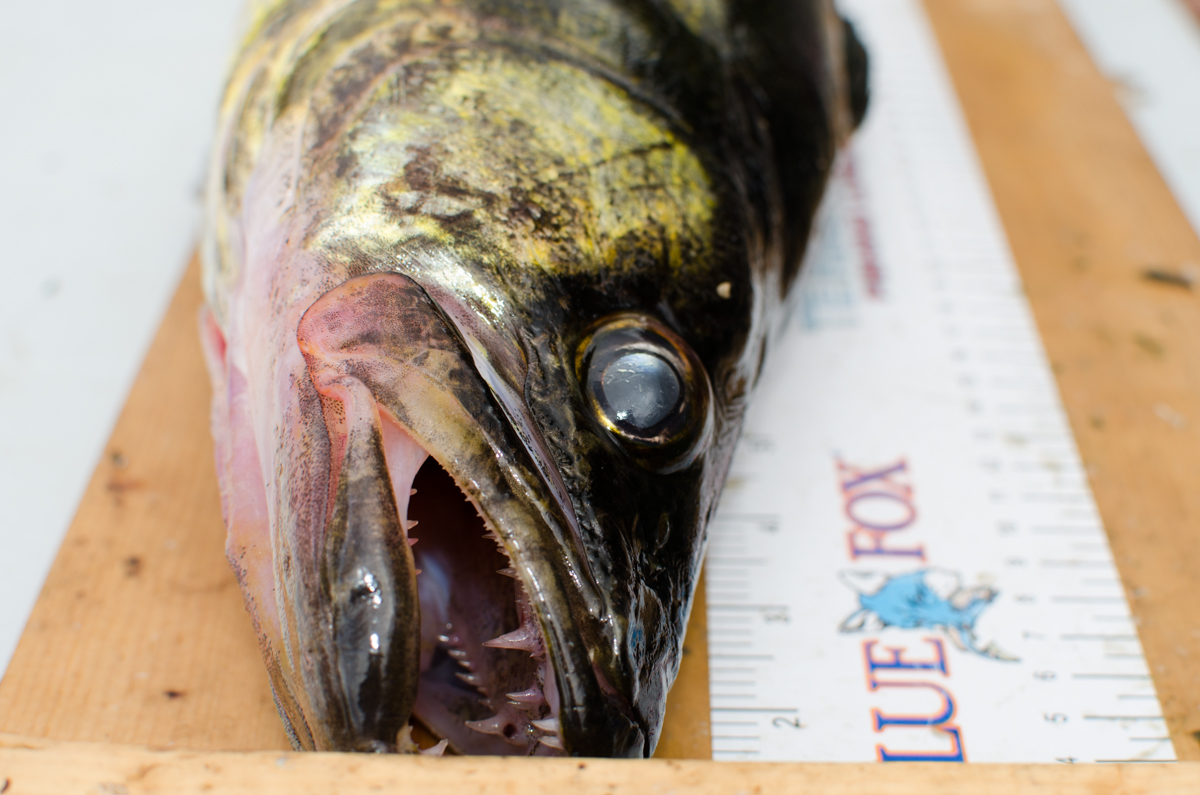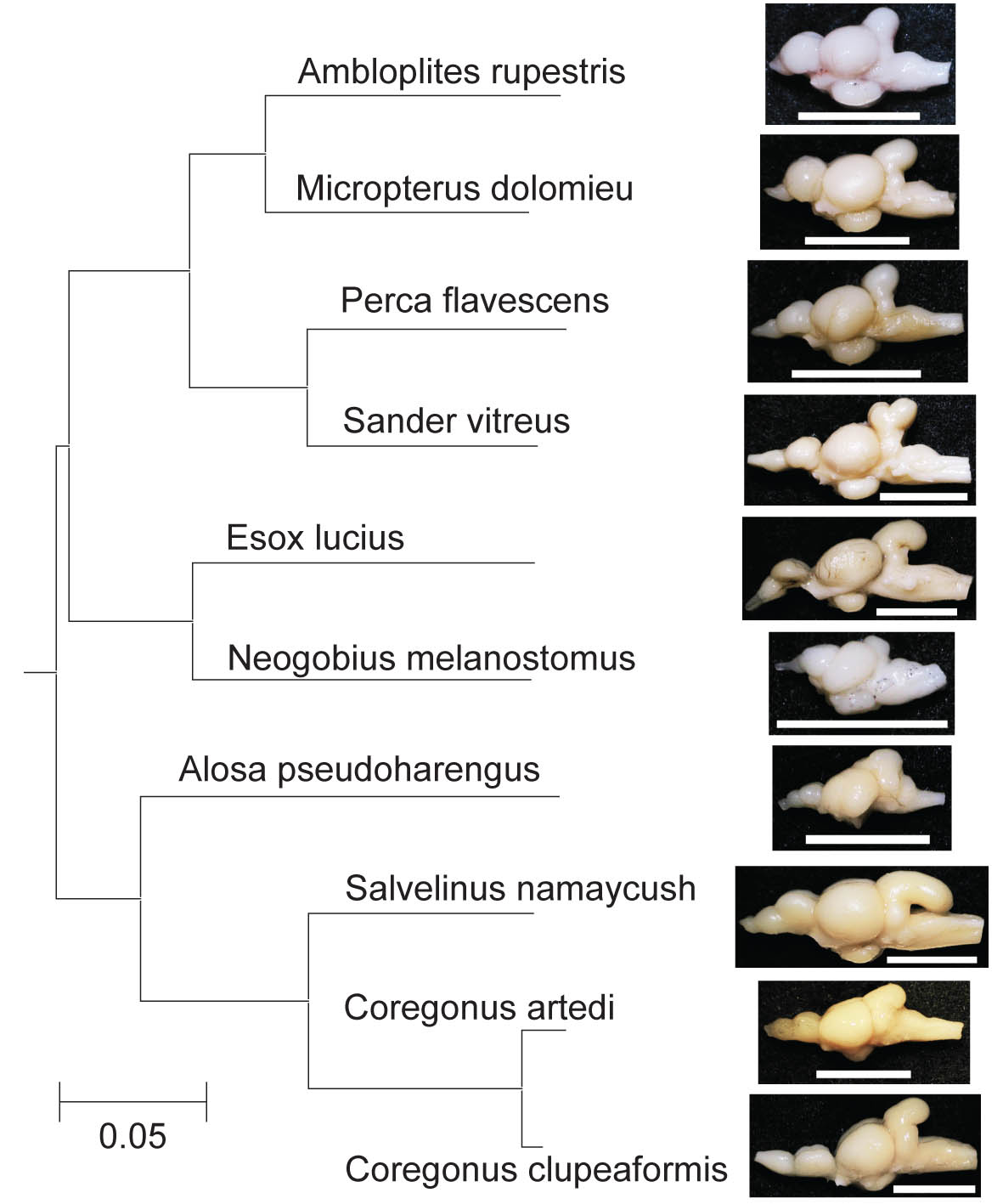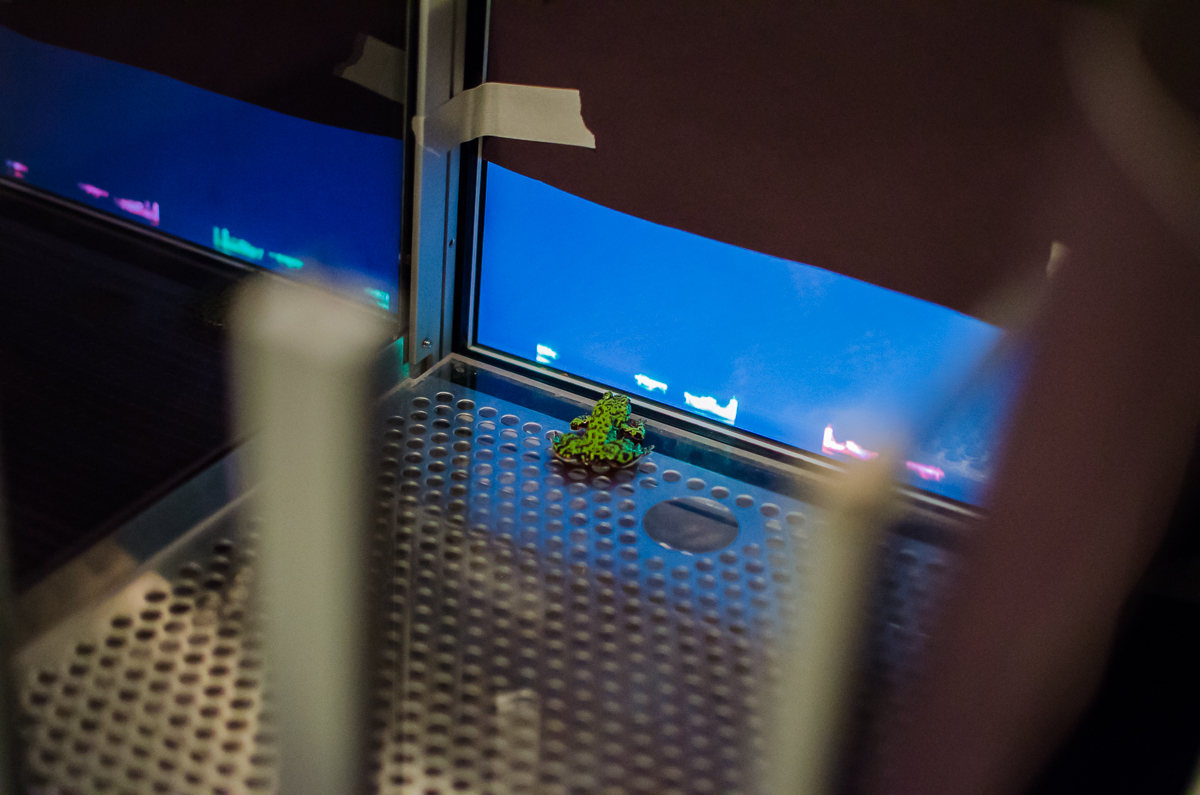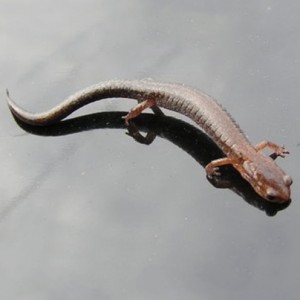Ecophysiology
Ecophysiology

Using a highly collaborative approach, we try to develop novel indicators of performance in aquatic wildlife for improved environmental monitoring of watersheds. Current work on this topic focuses on indicators of ecological performance and chronic stress in wild teleost fish as well as neurotoxicology. We evaluate ecological performance in fish by studying relationships between the morphology of organs critical for performance (e.g. brain – cognition; heart – swimming) and quantitative measures of foraging ecology obtained through food web analyses of stable isotope fluxes (see papers by Edmunds et al.). We are particularly interested in the plastic potential of these organs because teleosts display abundant, lifelong brain neurogenesis and the ability to remodel their hearts, potentially allowing to fine-tune the morphology of organs critical for performance in dynamic environments. We also attempt to develop indicators of chronic stress amenable for field sampling of fish. Recent work showed the promise of using hormone content in scales for this purpose (Laberge et al. 2019). Finally, we investigate if the presence of neurotoxic compounds in the environment can reduce brain size and behavioural abilities of fish.

More Research in the Laberge Lab


